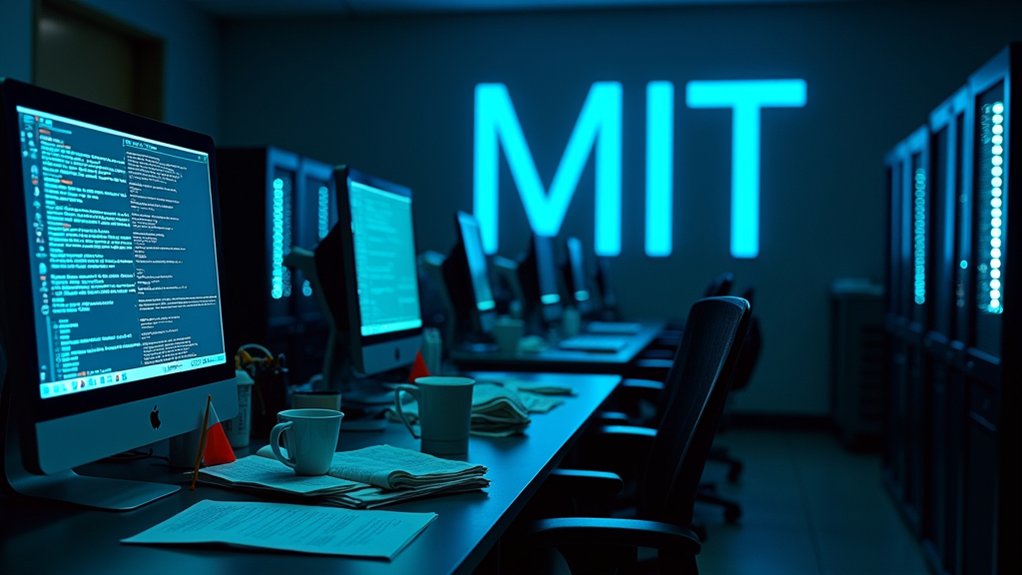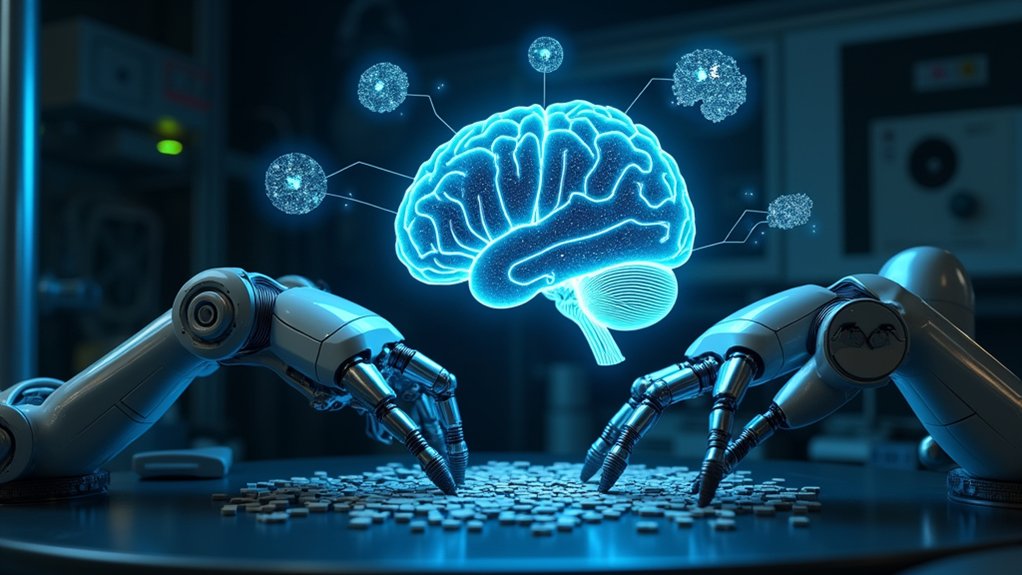While once hailed as a groundbreaking find, the MIT AI study titled “Artificial Intelligence, Scientific Discovery, and Product Innovation” has been utterly discredited. Authored by doctoral student Aidan Toner-Rodgers, it claimed AI tools boosted discoveries and patent filings in a materials science lab. Oh, and it threw in that AI tanked researchers’ job satisfaction. Prominent economists Daron Acemoglu and David Autor jumped on the bandwagon at first, calling it innovative. But, yeah, that glow faded fast. Ensuring data quality is crucial, and using techniques like bias detection can help prevent such research scandals.
MIT launched a confidential internal review in early 2025 after external red flags popped up. They couldn’t spill details due to student privacy laws, but the verdict was brutal. The university flat-out declared no confidence in the data’s provenance or the research’s veracity.
MIT launched a hush-hush review in early 2025 over red flags, keeping details under wraps for privacy, and flat-out trashed the study’s data integrity.
Toner-Rodgers? No longer with MIT. They even urged pulling the paper from circulation. In response, MIT formally requested the withdrawal request of the paper from arXiv and The Quarterly Journal of Economics. It’s like the institution just wanted to bury it, and who could blame them?
Digging deeper, the study’s design was a mess—shoddy, with false findings linked to a mismatched public health dataset. That reported 1,018 materials science researchers at one firm? Statistically absurd, raising eyebrows everywhere.
Productivity gains supposedly favored top scientists, but with data this unreliable, it’s laughable. And the job satisfaction drop clashing with productivity boosts? Total inconsistency, like mixing oil and water.
This scandal spotlights bigger risks, like AI-generated data getting exploited by shady “paper mills.” It’s a wake-up call on ethics in AI research—should machines even co-author papers? Preprints without peer review? A recipe for trouble, spreading misinformation like wildfire. Trust in AI’s productivity claims just took a hit.
Media buzzed, with The Wall Street Journal and Retraction Watch dissecting the mess. A computer scientist with expertise first sounded the alarm, and MIT’s internal chats were scathing. Public skepticism grew over the firm’s improbable setup.
Now, it’s a prime example of AI-related fraud. Esteemed professors backpedaled, withdrawing praise and admitting their error. The fallout? Tighter oversight on student projects, especially with AI. This incident highlights the need for strong policies expressed by early career researchers to safeguard research integrity. What a fiasco—science’s credibility hanging by a thread.




